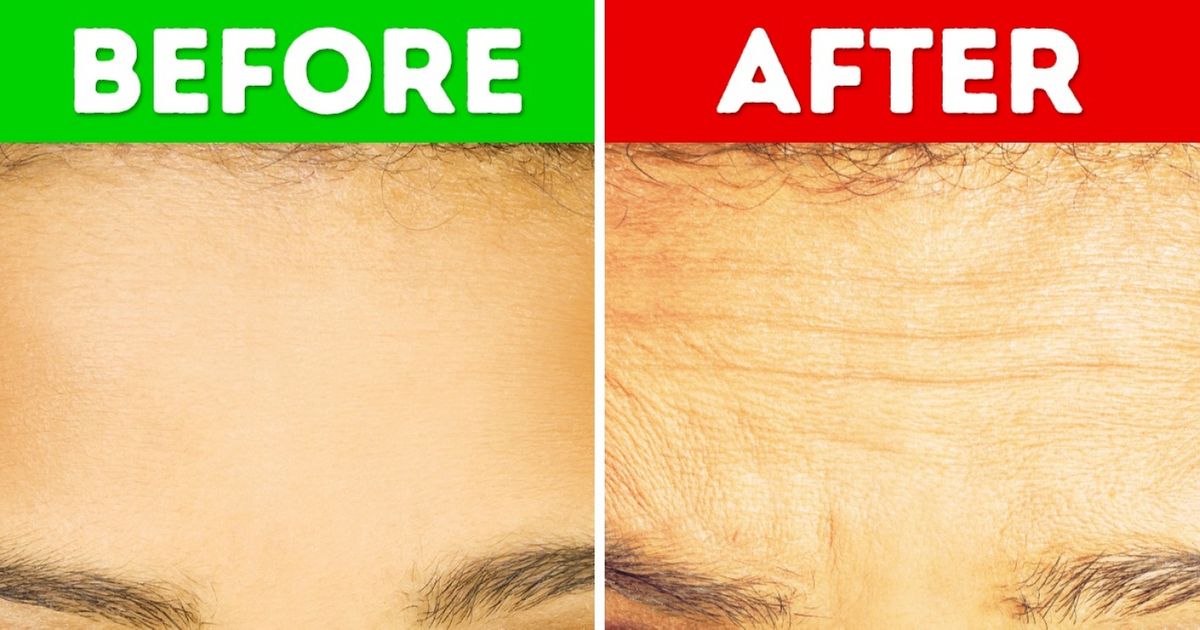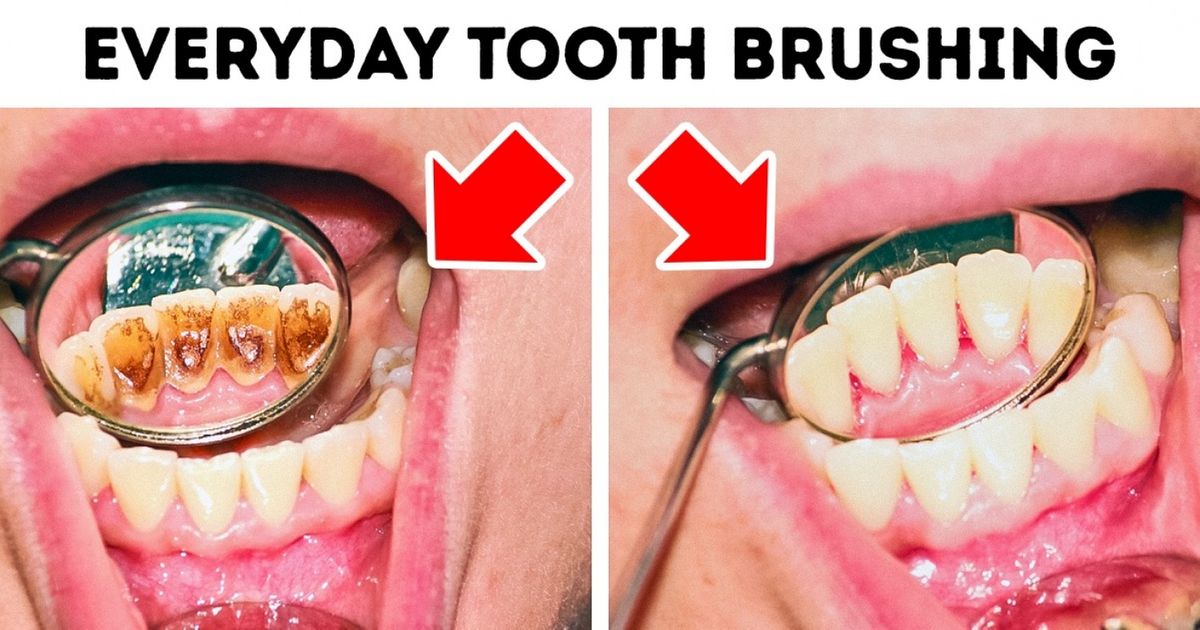Maintaining impeccable body hygiene is not just about looking and feeling good—it’s a vital component of overall health and well-being. However, many people unknowingly incorporate habits into their daily routine that can have adverse effects on skin, ears, and even mental health. In this comprehensive guide, we delve into six common body hygiene practices you might be doing wrong. We’ll explain why these practices can be harmful, provide evidence-based insights from reputable sources, and offer expert advice on how to improve your personal care routine. By understanding these mistakes, you can make smarter choices that boost your confidence and promote long-term health.
Wearing a Panty Liner All Day: Hidden Risks and Better Feminine Hygiene Practices
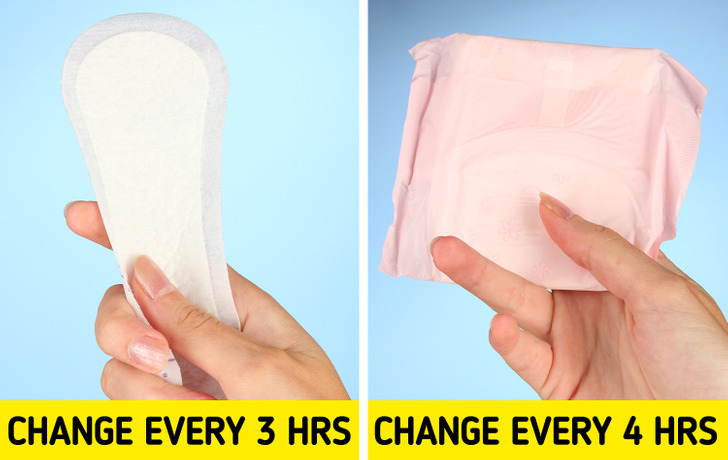
Wearing a panty liner throughout the day may seem like a convenient way to maintain freshness, but it can have unintended consequences for your intimate health. Extended use of panty liners can trap moisture, disrupt the natural pH balance, and even promote the growth of bacteria and yeast.
When the delicate vaginal area is constantly covered, it creates an environment that may lead to irritation and infections. According to Healthline, using panty liners for prolonged periods can interfere with the natural self-cleaning process of the vagina, increasing the risk of bacterial vaginosis and yeast infections. Additionally, many panty liners contain chemicals and fragrances that might cause allergic reactions or skin irritation.
Instead of relying on panty liners all day, consider changing them frequently or opting for breathable cotton underwear that helps maintain natural airflow. Keeping the area dry and clean with gentle, unscented products is key to supporting your feminine health. Remember, proper hygiene is about balancing cleanliness with preserving your body’s natural defenses.
Improper Ear Cleaning: The Dangers of Using Q-tips, Bobby Pins, and Sharp Objects
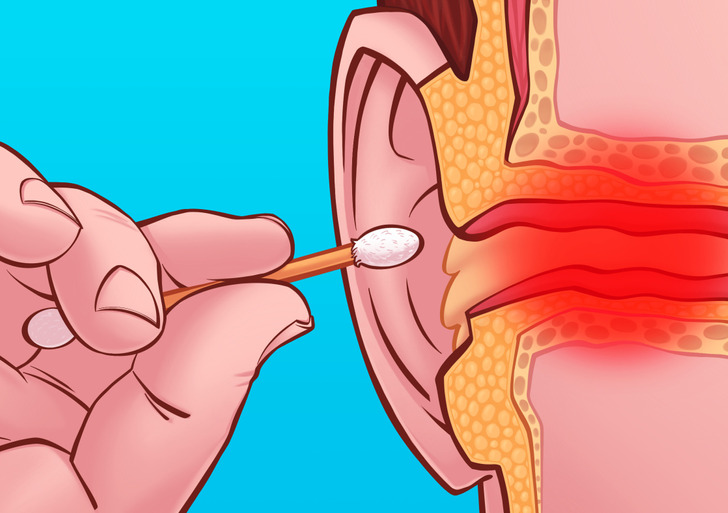
Cleaning your ears is essential, yet using Q-tips, bobby pins, or any sharp pointed objects to remove earwax can do more harm than good. The ear is a delicate organ with a natural mechanism for self-cleaning; inserting objects can push wax deeper into the ear canal, cause impaction, or even damage the eardrum.
Medical experts, including those at the Mayo Clinic, advise against using Q-tips for ear cleaning. The wax, or cerumen, actually serves as a protective barrier against dust, bacteria, and foreign particles. When you disturb this natural process, you not only risk damaging the inner ear but also increase the likelihood of infections. In severe cases, improper ear cleaning can lead to hearing loss or chronic ear conditions.
A safer approach is to clean only the outer ear with a soft, damp cloth and allow your body to expel the rest naturally. If you suspect an earwax buildup, consult a healthcare professional who can offer safe removal techniques rather than risking further damage with DIY methods.
Over-Exfoliating Your Skin Daily: Striking the Right Balance for Radiant Skin
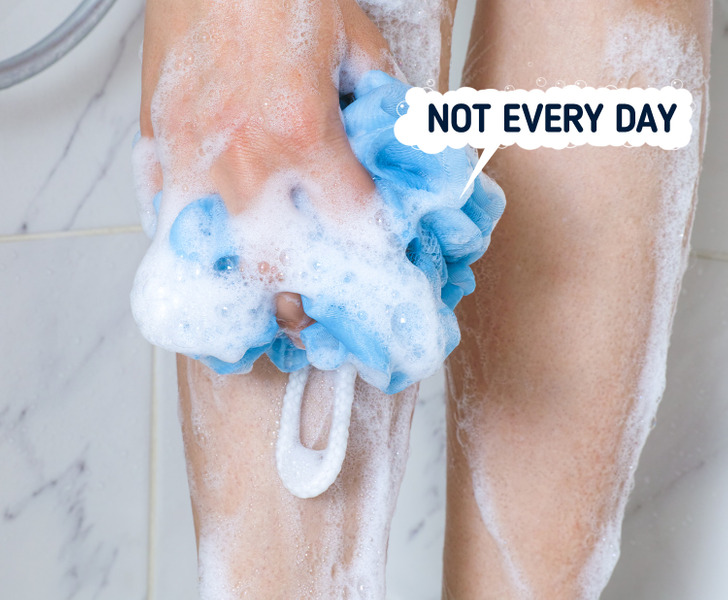
Exfoliation is a cornerstone of any effective skincare routine, but overdoing it can strip your skin of its natural oils, leading to irritation, dryness, and an impaired skin barrier. Daily exfoliation, especially with harsh scrubs, can lead to micro-tears in the skin, accelerate aging, and even cause inflammation.
The American Academy of Dermatology suggests that exfoliation should be done in moderation, ideally one to three times per week, depending on your skin type. Over-exfoliation can compromise the skin’s ability to retain moisture, leading to premature aging and increased sensitivity to environmental pollutants and UV radiation. Additionally, aggressive exfoliation may trigger breakouts in sensitive skin by disrupting the balance of beneficial bacteria.
For optimal results, consider using a gentle chemical exfoliant containing ingredients like glycolic acid or lactic acid, which can help remove dead skin cells without damaging the protective barrier. Always follow up with a hydrating moisturizer and apply sunscreen to shield your skin from harmful UV rays. This balanced approach not only maintains skin health but also enhances its natural radiance.
Neglecting Foot Care: The Importance of Regular Insole Replacement for Healthy Feet
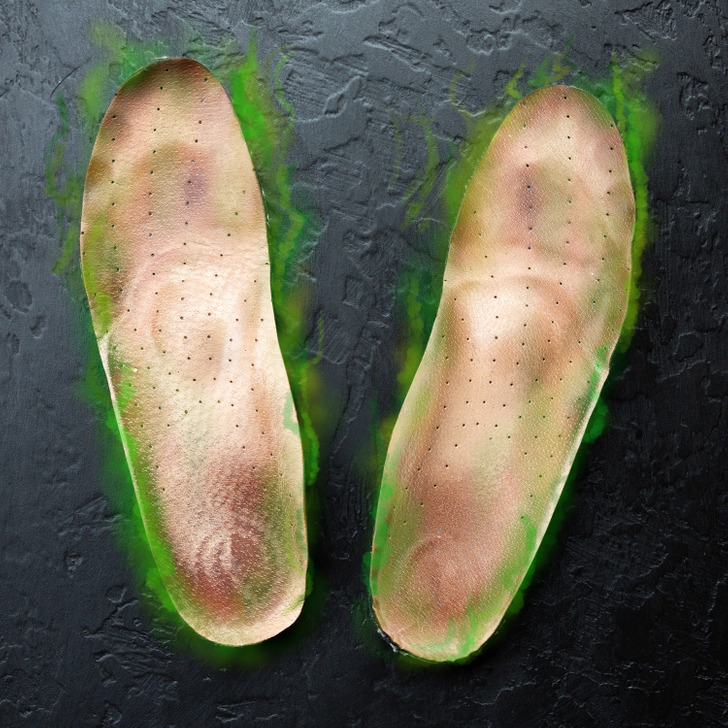
Foot care is often overlooked in daily hygiene routines, yet neglecting practices such as changing insoles regularly can lead to a host of problems. Insoles that are not replaced frequently can accumulate sweat, bacteria, and fungus, resulting in foot odor, infections, and even chronic foot pain.
According to WebMD, proper foot hygiene involves not only washing your feet daily but also ensuring that the footwear you use supports healthy foot mechanics. Over time, worn-out insoles lose their cushioning and support, leading to discomfort and an increased risk of conditions such as plantar fasciitis. Moreover, a buildup of bacteria in the insoles can exacerbate skin issues like athlete’s foot.
Experts recommend replacing insoles at least every six to twelve months, depending on usage and activity level. Investing in high-quality, breathable insoles and rotating your shoes can also help maintain foot health and reduce the risk of developing long-term foot problems. For those who are active or have a demanding job on their feet, frequent replacements and regular cleaning can make a significant difference.
Neglecting Underarm Hygiene: Why Proper Cleansing is Essential to Prevent Odor and Infections
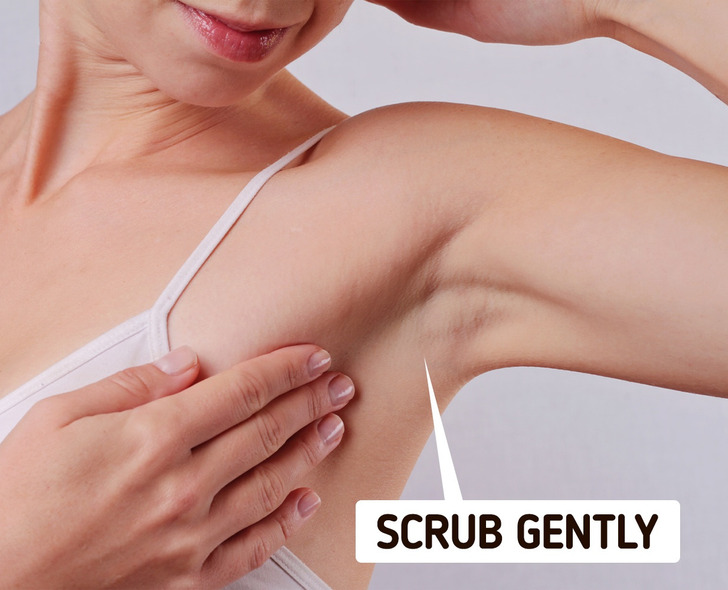
Underarm hygiene is crucial not only for controlling body odor but also for preventing bacterial growth and skin irritations. Many individuals skip thorough underarm cleansing, either due to time constraints or the misconception that deodorants alone are sufficient. However, neglecting to scrub your underarms can lead to an accumulation of sweat, dead skin cells, and bacteria, which can cause unpleasant odors and even infections.
Routine cleansing of the underarm area with a mild, fragrance-free cleanser can help remove buildup and maintain a healthy balance of skin flora. The Mayo Clinic emphasizes that proper underarm hygiene is key to preventing conditions like folliculitis and other skin irritations. Using a gentle scrub or a washcloth in circular motions can effectively remove residue without causing irritation.
For best results, pair your cleansing routine with an appropriate deodorant or antiperspirant, and consider using products that contain natural antibacterial ingredients. This holistic approach not only keeps you feeling fresh throughout the day but also supports the long-term health of your skin in a sensitive area.
Misusing Antibacterial Soap on the Face: Balancing Cleanliness with Natural Skin Flora
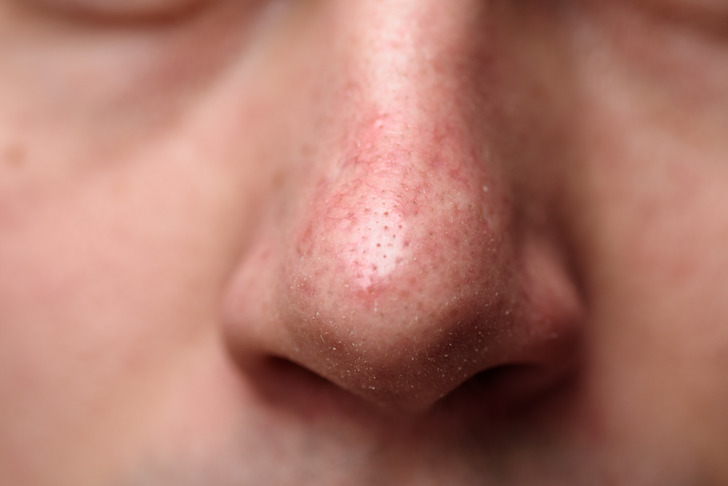
While antibacterial soap is effective in eliminating germs on the body, using it on the face can be counterproductive. The skin on your face is delicate and needs a balanced ecosystem of bacteria to stay healthy. Overuse of antibacterial soap can strip away essential oils and disrupt the natural balance, leading to dryness, irritation, and even acne.
Dermatologists, including those at Healthline, advise against the regular use of antibacterial products on the face. Instead, opt for gentle, pH-balanced cleansers that effectively remove impurities without compromising your skin’s natural barrier. The overuse of harsh antibacterial agents can also lead to bacterial resistance, reducing their effectiveness over time.
To maintain clear and healthy skin, consider a skincare routine that emphasizes hydration and protection. Use a gentle cleanser suited to your skin type, followed by a moisturizer that locks in hydration. If you have persistent skin issues, consult a dermatologist who can recommend products tailored to your unique needs. This approach not only ensures a healthier complexion but also supports long-term skin resilience.
Conclusion: Transforming Your Body Hygiene Routine for Better Health
Small changes in your daily hygiene practices can lead to significant improvements in your overall health and well-being. By rethinking and adjusting habits such as prolonged panty liner use, improper ear cleaning, daily over-exfoliation, neglecting foot care, underarm cleansing oversights, and the misuse of antibacterial soap on your face, you can protect your skin, ears, and entire body from potential harm.
Understanding and implementing expert-recommended hygiene practices is the first step toward a healthier lifestyle. Whether it’s replacing your insoles regularly or choosing the right cleansing products for your skin, these changes not only enhance your personal care routine but also boost your confidence and long-term wellness.
For additional expert advice and information on body hygiene, check out resources from trusted sites like Mayo Clinic, Healthline, and WebMD. These sources provide in-depth insights and evidence-based recommendations to help you refine your daily routines and achieve optimal health.
Taking charge of your body hygiene isn’t about perfection—it’s about making informed, mindful decisions that support your health over the long term. By addressing these common mistakes and incorporating expert tips into your routine, you’re well on your way to a cleaner, healthier, and more confident you. Embrace these changes, and let your commitment to personal care be the foundation for a vibrant, healthy lifestyle.
Preview photo credit Depositphotos.com, Depositphotos.com
